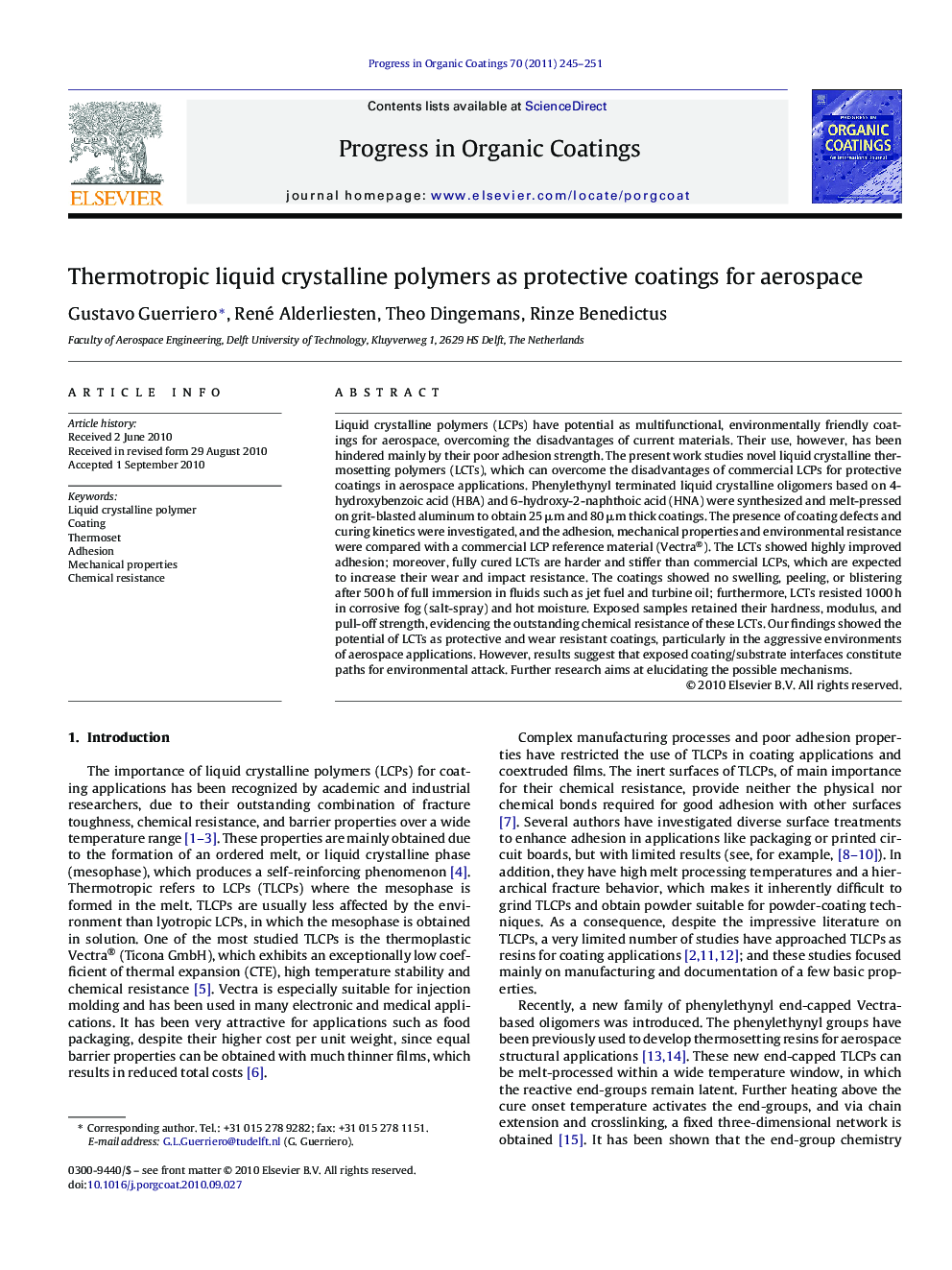| Article ID | Journal | Published Year | Pages | File Type |
|---|---|---|---|---|
| 693055 | Progress in Organic Coatings | 2011 | 7 Pages |
Liquid crystalline polymers (LCPs) have potential as multifunctional, environmentally friendly coatings for aerospace, overcoming the disadvantages of current materials. Their use, however, has been hindered mainly by their poor adhesion strength. The present work studies novel liquid crystalline thermosetting polymers (LCTs), which can overcome the disadvantages of commercial LCPs for protective coatings in aerospace applications. Phenylethynyl terminated liquid crystalline oligomers based on 4-hydroxybenzoic acid (HBA) and 6-hydroxy-2-naphthoic acid (HNA) were synthesized and melt-pressed on grit-blasted aluminum to obtain 25 μm and 80 μm thick coatings. The presence of coating defects and curing kinetics were investigated, and the adhesion, mechanical properties and environmental resistance were compared with a commercial LCP reference material (Vectra®). The LCTs showed highly improved adhesion; moreover, fully cured LCTs are harder and stiffer than commercial LCPs, which are expected to increase their wear and impact resistance. The coatings showed no swelling, peeling, or blistering after 500 h of full immersion in fluids such as jet fuel and turbine oil; furthermore, LCTs resisted 1000 h in corrosive fog (salt-spray) and hot moisture. Exposed samples retained their hardness, modulus, and pull-off strength, evidencing the outstanding chemical resistance of these LCTs. Our findings showed the potential of LCTs as protective and wear resistant coatings, particularly in the aggressive environments of aerospace applications. However, results suggest that exposed coating/substrate interfaces constitute paths for environmental attack. Further research aims at elucidating the possible mechanisms.
